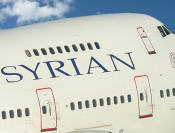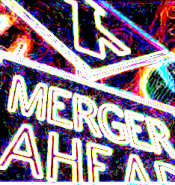 A criminal complaint (not yet available on PACER) was, according to news reports on the AP wire and in the DC Examiner, filed against Yaming Nina Qi Hanson, a 51-year-old woman living in Silver Spring, Maryland. The complaint charged her with exporting autopilot circuits to China without a license. The autopilots, manufactured by Manitoba-based MicroPilot, weigh 24 grams (0.85 ounces) and are specially designed for use in unmanned aerial vehicles (“UAVs”), or drones. Hanson’s husband was named as a co-conspirator but has not yet been charged.
A criminal complaint (not yet available on PACER) was, according to news reports on the AP wire and in the DC Examiner, filed against Yaming Nina Qi Hanson, a 51-year-old woman living in Silver Spring, Maryland. The complaint charged her with exporting autopilot circuits to China without a license. The autopilots, manufactured by Manitoba-based MicroPilot, weigh 24 grams (0.85 ounces) and are specially designed for use in unmanned aerial vehicles (“UAVs”), or drones. Hanson’s husband was named as a co-conspirator but has not yet been charged.
I’ll provide more details once the criminal complaint appears on PACER, but the account in the news reports raise provide some apparently incriminating details that the Hansons will need to explain.
It appears that MicroPilot told the Hansons that the autopilots could be shipped to the United States, but that exports from the United States would need to be licensed. The Hansons told MicroPilot that the autopilots were destined for model flying clubs in China. Canadian officials understandably wondered why model airplane clubs would use autopilots since manual control was more or less the point of flying a model aircraft. Mr. Hanson allegedly replied that “”typical of Asian men, these modelers want the very best product on the market.” So, once the Hansons signed a letter promising not to export the autopilots without a license from the U.S. government, the company shipped 20 autopilots valued at $90,000
According to the criminal complaint, Mrs. Hanson admitted delivering the autopilots to China without a license. She allegedly said that she thought that they were destined for “humanitarian” purposes and for the flight clubs. The money to pay for the autopilots was also alleged to have been hand-carried into the United States by Mrs. Hanson and friends in amounts less than $10,000 to avoid reporting requirement. The criminal complaint also states that the Hansons filed a claim with UPS asserting that the shipment from MicroPilot had never arrived and was lost.

 Posted by
Posted by  Category:
Category: 

 According to a
According to a  According to
According to  With a new administration in the White House, opponents of the Cuba embargo are hoping to pass legislation that could gradually chip away at the total embargo in place against the island. Last week Representative Bill Delahunt [D-Mass.] introduced the
With a new administration in the White House, opponents of the Cuba embargo are hoping to pass legislation that could gradually chip away at the total embargo in place against the island. Last week Representative Bill Delahunt [D-Mass.] introduced the  A
A 

